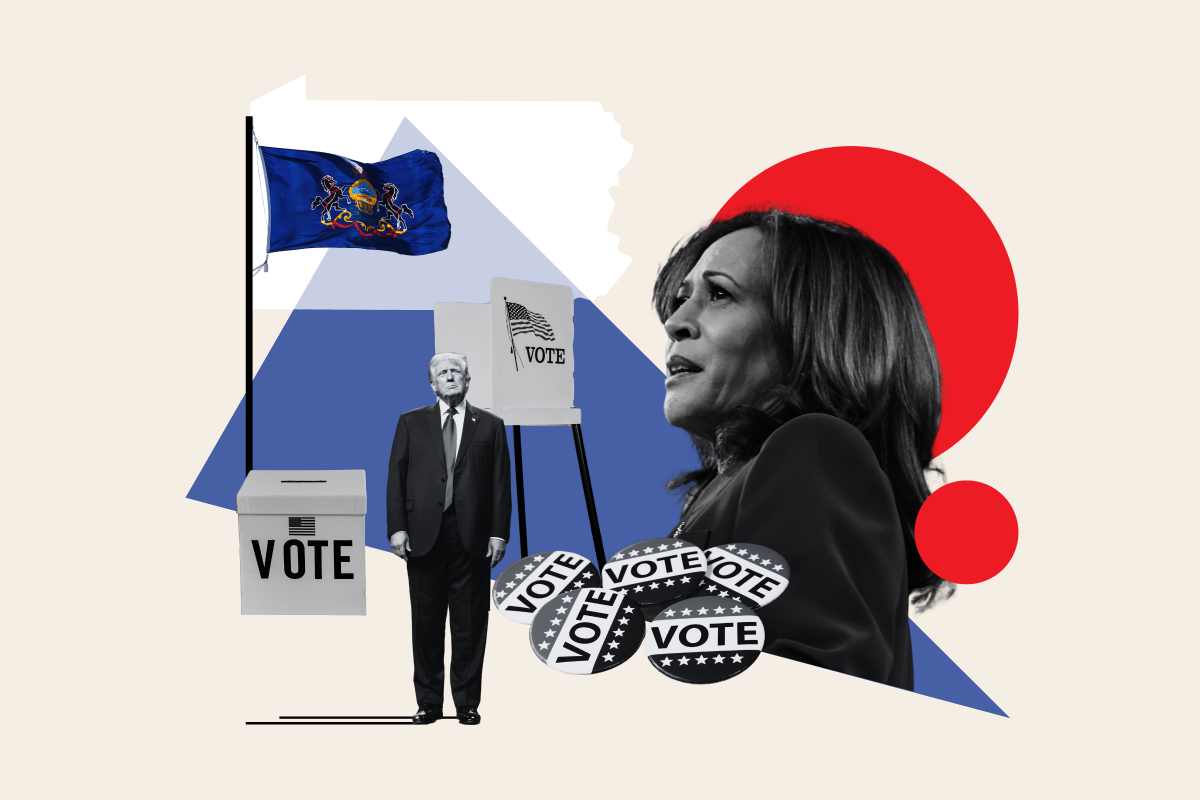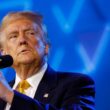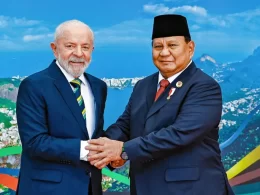The 2024 U.S. presidential race has almost reached its last leg and what is heating up the arena are the high-profile endorsements from celebrities and billionaires taking center stage, not only influencing political discourse but also shaping public opinion. As Democratic presidential candidate and Vice President Kamala Harris, 59, stands against Republican nominee and former President Donald Trump, 78, the power of celebrity and billionaire backing has added a dynamic layer to this year’s campaign.
Many celebrities have come forward to endorse their preferred candidate, bringing attention and momentum to both campaigns. On one hand, Democratic nominee Kamala Harris has gained notable support from Hollywood stars and Silicon Valley magnates; meanwhile, Trump, seeking a return to the White House, has drawn significant financial backing from influential business figures, including some of the wealthiest individuals in the world.
Billionaire Endorsements Split Between Harris and Trump
According to Forbes, at least 100 billionaires have openly thrown their weight behind either Kamala Harris or Donald Trump – 76 billionaires are rallying behind Harris, while 49 have publicly endorsed Trump.
However, a number of high-profile figures, including Warren Buffett and Mark Zuckerberg, have chosen not to declare their support for either candidate at this time.
So who are the Billionaires backing Kamala Harris?
Kamala Harris has largely focused her campaign on appealing to the middle class, emphasizing economic policies that critics say may not necessarily favor big business or the ultra-wealthy. Despite this, a letter signed by over a dozen billionaires endorsing Harris outline her commitment to “fair and predictable policies” that are expected to support and grow economic stability, according to Forbes.
In fact, Harris’ platform has particularly resonated with Silicon Valley’s tech moguls and industries poised for growth under her potential administration, including technology, healthcare, and sustainability.
Here are some top names among the 76 billionaires supporting her-
Michael Bloomberg (Bloomberg, former New York mayor), Reid Hoffman (LinkedIn), Vinod Khosla (Khosla Ventures), Dustin Moskovitz (Facebook), John Pritzker (Hyatt Hotels), Steven Spielberg (Hollywood director), Reed Hastings (Netflix), Chris Larsen (Ripple), Laurene Powell Jobs (Apple), Christy Walton (Walmart), Melinda French Gates (Microsoft), Joe Gebbia (Airbnb), Mark Cuban (Shark Tank investor), Hamdi Ulukaya (Chobani)
In addition to these prominent business leaders, Kamala Harris has received endorsements from popular cultural figures, including music icon Bruce Springsteen, who publicly supported her on October 3, and pop superstar Taylor Swift, who endorsed her after the first presidential debate on September 10.
Donald Trump’s Billionaire Supporters
Donald Trump, who is no stranger to the business world himself, has secured the backing of 49 billionaires for his second presidential bid and leading the charge is none other than Elon Musk, the world’s richest man and CEO of Tesla and SpaceX. Musk, who is on track to become the world’s first trillionaire, has been actively involved in Trump’s campaign, attending rallies and urging his social media followers to support Trump.
Musk’s financial contributions have been equally significant. Over the summer, Musk contributed more than $70 million to support Donald Trump and other Republican candidates, positioning himself as one of the largest GOP donors this election season. His political action committee, America PAC, has become a pivotal player in Trump’s election efforts.
Musk explained that the aim of America PAC is to promote “common sense, centrist values,” a stance that aligns with Trump’s campaign rhetoric. In addition to Musk, other notable Trump supporters include the Winklevoss twins, Tyler and Cameron, who were early investors in Facebook and have contributed to Trump’s campaign through America PAC.
Despite most of the PAC’s resources being directed toward the presidential race, America PAC has also funneled around $5 million toward helping Republican House candidates, signaling the broader impact of billionaire donations on the upcoming election.
Prominent Billionaires Supporting Donald Trump
Antonio Gracias (early investor in Tesla), Linda McMahon (Former WWE executive), Phil Ruffin (Owner of Treasure Island Las Vegas), Kenny Troutt ( Prominent figure in horse racing), Miriam Adelson (Chairwoman of Las Vegas Sands Corp), Diane Hendricks ( Owner of ABC Supply, a leading construction company), Douglas Leone (Partner at Sequoia Capital), Robert “Woody” Johnson (Owner of the New York Jets), Steve Wynn (Founder of Wynn Resorts), Terry Taylor (Car dealership magnate), William Wrigley, Jr. (Heir to the Wrigley chewing gum fortune).
Billionaires Who Haven’t Endorsed a Candidate
While many billionaires have publicly aligned themselves with either Kamala Harris or Donald Trump, several influential figures have chosen to remain neutral or silent during this election cycle. Notable names include:
Warren Buffett – CEO of Berkshire Hathaway and the world’s sixth-richest person, has not endorsed either candidate.
Mark Zuckerberg – Facebook’s CEO, who, despite Trump’s claims that he won’t vote for a Democrat, has not publicly backed anyone.
Bill Gates – Microsoft co-founder has not endorsed a candidate, though his ex-wife, Melinda French Gates, has backed Kamala Harris.
Jamie Dimon – CEO of JPMorgan Chase, has not made any endorsements, despite Trump sharing a false claim that Dimon had endorsed him.
Sergey Brin – Co-founder of Google, remains silent on his presidential preference.
Larry Ellison and Ken Griffin – Both have donated millions to Republican causes in the past but have not formally endorsed a candidate in this election cycle.
Jeff Bezos – Amazon founder and the world’s fourth-richest person has not backed any candidate, though he praised Trump for his grace during an assassination attempt in July.

Trump vs. Harris: What the 2024 U.S. Election Means for India
As the U.S. presidential election looms, its outcome will have significant implications for India’s diplomatic and economic relations with the U.S. During his three-day visit to the U.S. in September, Prime Minister Narendra Modi notably did not meet either Kamala Harris or Donald Trump, opting to avoid engagement with candidates during the election season.
Modi’s interactions with Trump during the latter’s presidency were notable for high-profile events, including the 2019 “Howdy Modi” rally in Texas, which drew an audience of 50,000, and the 2020 “Namaste Trump” event in Gujarat, attended by over 120,000 people. However, with the 2024 election, the future of U.S.-India relations will hinge on whether Harris or Trump emerges victorious as the 47th president of the United States. With Election Day approaching on November 5, 2024, the stakes are high, and the result will inevitably shape U.S.-India diplomacy and economic partnerships in the years to come.
The Biden Era in India-US Relations
During President Joe Biden’s administration, India and the U.S. saw significant cooperation across various sectors, particularly in strategy, defense, trade, health, and climate change. The Biden years were marked by a renewed emphasis on a strong strategic partnership, underscored by shared democratic values and a commitment to regional stability, particularly in the Indo-Pacific.
The Quad initiatives—involving the U.S., India, Japan, and Australia—strengthened military and strategic ties between the two nations. This was reflected in increased defense product sales, joint military exercises, and enhanced intelligence-sharing. The Biden administration also made strides in trade relations, attempting to narrow the trade gap between the two countries while collaborating on climate change solutions. Both nations pledged support for renewable energy and a joint US-India Climate and Clean Energy Agenda 2030.
The Biden administration also extended considerable aid to India during the COVID-19 crisis, engaging in vaccine diplomacy to meet the country’s health needs.
Tanvi Madan, senior fellow at Brookings, an American think tank, stated that, “The U.S. has perceived India through the lens of Indo-Pacific competition, viewing India as a key player in regional deterrence, a counterbalance to China, a potential economic alternative, a trusted technology partner, and a democratic contrast to China’s authoritarianism.”
5 Critical Sectors Impacted by the 2024 U.S. Election
Thus, the outcome of the U.S. 2024 Presidential Election will have significant implications for India, especially in five critical areas:
Bilateral Ties: Whether Donald Trump or Kamala Harris wins, the result will undoubtedly impact India-U.S. relations, especially in defense, trade, and strategic sectors.
Economic Impact: Trade remains a cornerstone of the relationship. According to data from GTRI in May 2024, bilateral trade between India and the U.S. reached $118 billion in FY 2023-24.
Geopolitics: U.S. policies on China, Russia, and other regional issues could influence India’s strategic moves. A tougher U.S. stance on China may benefit India, particularly in the Indo-Pacific region.
Indian Americans: The Indian diaspora in the U.S., numbering about 4.5 million according to the 2020 U.S. Census, plays a vital role in shaping perceptions and influencing policies. The election outcome could affect their engagement in bilateral issues.
Climate and Technology: Collaboration on climate change and technology transfer will depend on the priorities of the new administration, which could shape future cooperation.

The Road Ahead: Harris or Trump?
Should Kamala Harris win the presidency, she is expected to carry forward many of Biden’s trade policies, focusing on economic resilience, boosting domestic manufacturing, and reducing reliance on global supply chains.
Donald Trump, in contrast, has always championed protectionist trade policies centered on his “America First” principles. He has been critical of trade imbalances with India, calling the country a “very big abuser” of trade ties, despite praising Prime Minister Modi as “fantastic.”
Dr. Chietigj Bajpaee, a political analyst at Chatham House, notes that a Harris administration might continue the Biden-era policies, while Trump is likely to adopt a more transactional approach, scrutinizing trade and migration issues more closely.
As Tanvi Madan points out, the future of India-U.S. relations will largely depend on the priorities of the next U.S. President, their view of India’s role, and their approach to partners like China and Russia. However, regardless of who wins, India’s relationship with the U.S. is critical, and New Delhi will seek to work closely with whoever occupies the White House.
The Race to 2024
As the 2024 presidential election nears, the endorsements of celebrities and billionaires are becoming increasingly influential in swaying voters and energizing campaign efforts. Whether Harris’ tech and entertainment supporters or Trump’s business allies will have the most sway remains to be seen. One thing is clear though the road to the White House is being paved not just with votes, but with high-profile endorsements that could tip the scales in what promises to be a tightly contested race.










